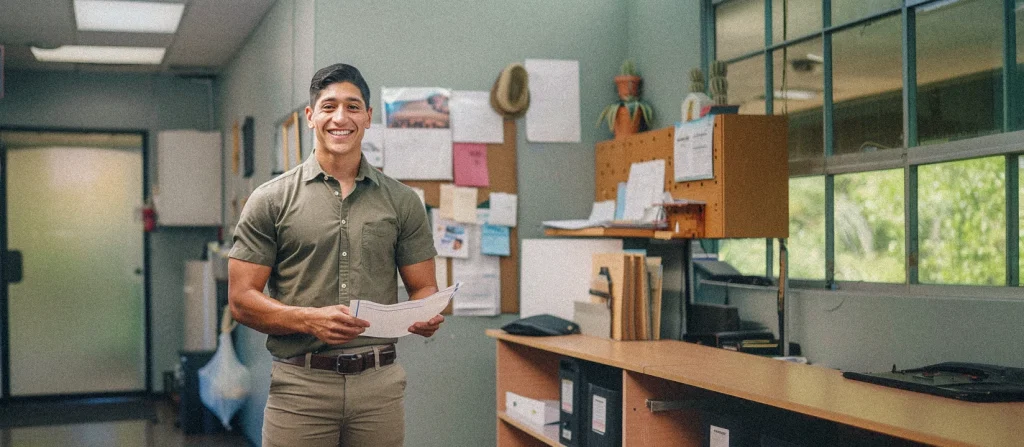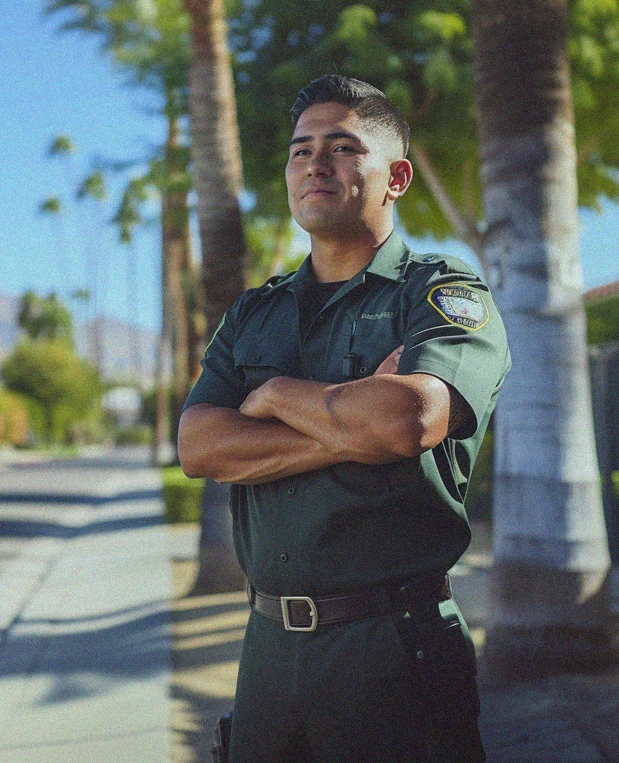
Security Guard Training: Tips for a Job Interview
We want to set you up for success when you interview for a job. Here are some valuable tips. We recommend taking action on all of these. Your goal is to get hired – and this advice will help with that.
Preparation for the Security Guard Job Interview
Research the Security Guard Company
Before your interview, learn about the company you want to work for. Look at their website to see what kind of security work they do. Find out if they guard buildings, events, or people. Try to understand what makes this company different from others. Knowing about the company shows you’re interested and helps you answer questions better.
Review the Job Description:
Read the job description carefully. It tells you what the company wants in a security guard. Look for key skills they mention, like being alert or good at talking to people. Think about times you’ve used these skills before. This helps you give good examples during the interview. Understanding the job also helps you decide if it’s right for you.
Prepare relevant questions:
Think of questions to ask the interviewer. This shows you’re interested in the job. You could ask about the daily tasks of the job, what kind of training they offer, or how they handle difficult situations. (Don’t ask about salary or time off in the first interview unless they bring it up.) Good questions show you’ve thought seriously about the job and want to learn more.
Proper grooming for a job interview:
When you go to a job interview, it’s important to look clean and tidy.
Make sure your hair is neat and brushed. If you have facial hair, keep it trimmed or shave.
Don’t wear strong perfume or cologne, as some people may not like strong smells. (We have had people come in for an interview smelling like marijuana. This is not appropriate for a work setting!)
Looking clean shows that you can represent the company well.
The right clothes for a job interview:
Wear clothes that look professional for your interview. This usually means a clean shirt with a collar. Wear pants (not shorts) and clean shoes. Make sure your clothes are clean and not wrinkled. Dressing well shows that you take the job seriously and respect the company.

What to bring to a job interview:
Bring a couple of useful items to your interview. A folder is good for holding a copy of your resume and any certificates you have. A folder will make sure they don’t get wrinkled, torn, dirty, etc.
You can also bring a small notepad to take notes. Bring a pen as well. Don’t bring too many things – just what you need. Having these items ready shows that you’re prepared and organized.
At the Job Interview
Speaking Clearly and Confidently:
When you talk in your interview, try to speak clearly so the interviewer can understand you easily. Don’t talk too fast or too quietly. It’s okay to take a moment to think before you answer questions. This shows you’re considering your answers carefully. Try to sound confident, even if you feel nervous. You can practice speaking before the interview with a friend or in front of a mirror. Remember, it’s normal to feel a little nervous, but deep breaths can help you stay calm.
Active listening:
Good communication isn’t just about talking – it’s also about listening. Pay close attention to what the interviewer is saying. Look at them when they speak to show you’re focused on their words. If you don’t understand something, it’s okay to ask them to explain. Sometimes, repeating back part of what they said can show you’re listening and help make sure you understood correctly. Active listening helps you give better answers and shows you’re good at following instructions.
Answering questions:
When you answer questions, try to be clear and to the point. Give enough information to fully answer the question, but don’t talk for too long about one thing. If you’re asked about your experience, give a short example that shows your skills. If you’re not sure about something, it’s better to say so than to guess. Remember, the interviewer wants to know about you, but they probably have many questions to ask. Keeping your answers short but complete helps the interview go smoothly.
Highlighting Relevant Experience
Previous security work:
If you’ve worked as a security guard before, talk about this experience. Mention where you worked and what your main duties were. For example, you could say, “I worked as a night guard at a shopping center for two years. I patrolled the area, monitored security cameras, and wrote reports about any unusual events.” Explain how your past work has prepared you for this new job. If you’ve handled any difficult situations, briefly describe what you did and how it turned out.
Military or law enforcement background:
If you’ve been in the military or worked in law enforcement, this can be very valuable for a security job. Talk about the skills you learned, like staying alert, following procedures, or working as part of a team. You might say, “In the army, I learned how to stay calm in stressful situations and how to follow strict security protocols.” Explain how these skills can help you in the security guard role you’re applying for.
If you don’t have military or law enforcement experience, that is okay, too. Many talented and valuable security guards start as guards.
Customer service experience:
Security guards often interact with the public, so customer service skills are important. If you’ve worked in shops, restaurants, or other jobs dealing with people, mention this. For example, “When I worked at a hotel front desk, I learned how to talk to all kinds of people and solve problems calmly.” Explain how you can use these skills to be a friendly but firm security guard who can handle different situations with people.
